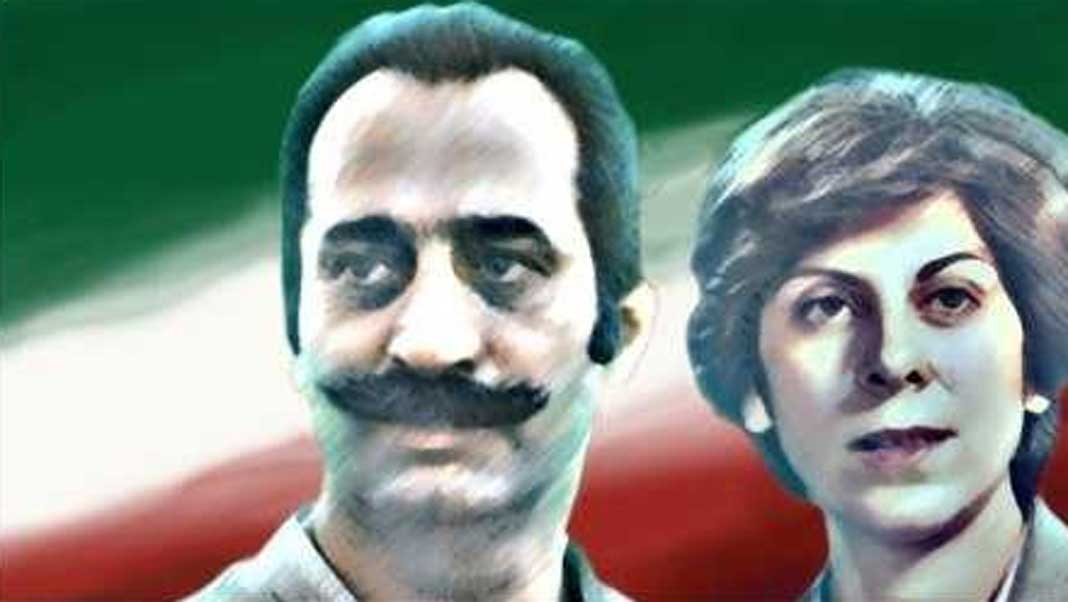November 14, 2017
By Parastou Forouhar
November 22 will mark the 19th anniversary of the death of Dariush Forouhar, leader of the Nation Party of Iran, and his wife Parvaneh Eskandari Forouhar. They were killed in their house in Tehran. It is widely believed that the murders were carried out on the orders of the Iranian Ministry of Intelligence. They remain unresolved to date.

The anniversary of their death is a reminder that justice has not been served in the politically motivated murder of the Forouhars. It is also an opportunity to remember and honor all those who have been brutally killed, including Dariush Forouhar, Parvaneh Forouhar, Mohammad Mokhtari [writer, political activist killed in December 3, 1988], Mohammad-Jafar Pouyandeh [writer, political activist who died under suspicious circumstances in December 9, 1988], Majid Sharif [journalist who died under suspicious circumstances on November 19, 1988], Pirouz Davani [leftist activist and editor of the Pirouz newspaper, who disappeared under suspicious circumstances on August 28, 1998], and Hamid Hajizadeh [poet] and his young son Karoun [stabbed to death on September 22, 1998.]
Seeking justice requires concerted, forceful and unrelenting effort. The outrage cannot be fully expressed by holding an annual memorial service for those who lost their lives in such a brutal way. Instead, we can use this occasion to refresh public memory, awaken collective conscience, reinforce civic duties and remember our moral responsibility to seek justice for those intellectuals who were violently silenced.
It is unlikely that we will receive answers under the current circumstances. But in the absence of a collective will to demand the truth, we remain steadfast in our struggle to find justice. Although our efforts to keep these memories alive are at times exhausting, retelling the story is a way of battling apathy and indifference. It is a challenge to history and strengthens our resolve.
I will be travelling to Tehran soon to commemorate the anniversary of my parents’ passing. I will honor their lives and memories at their home, which was also where they were killed. I will seek justice for the victims of political persecution. As in previous years, I hope to receive the support of those like-minded souls who are relentless in their pursuit of the truth.
The Iranian government has banned any memorial service for my parents. My lawyer has filed a formal petition on my behalf with the Majlis’ [Iranian Parliament] Article 90 Commission. We have not yet had a response. I will pursue the matter during my forthcoming visit.
My parents’ house was burgled and damaged. But despite overwhelming evidence and my lawyer’s best efforts, the case was lost in the maze of the judicial bureaucracy. If possible, I will also pursue this matter. If I get no results, then I will know for certain that the Islamic Republic’s judiciary does not protect our rights.
The Ministry of Intelligence filed a complaint against me last year. The case has now been referred to the Branch 28 of the Revolution Court. I am accused of “blasphemy” and of being engaged in “propaganda against the regime.” The court hearing is set for three days after the anniversary of the death of my parents.
I am certain that these fabricated charges were filed against me, in retaliation for my relentless pursuit of truth and justice for my parents. This is an example of how the mothers, sisters and relatives of murdered political activists are pressured into abandoning their demand for answers and justice.
It is unclear whether we, the family of the murdered political activists, have rights or a place in society. What can we do but to endure and remain silent? We live in a system where seeking justice is equated with propaganda against the regime. Are the authorities only capable of threatening, intimidating and silencing those who demand justice?
I firmly believe that our resolve and perseverance in pursuing justice will help us triumph. We must not give into our fears. Seeking justice is a collective and civic responsibility. However, reclaiming this responsibility becomes all the more difficult and important when it has been neglected for so long.








